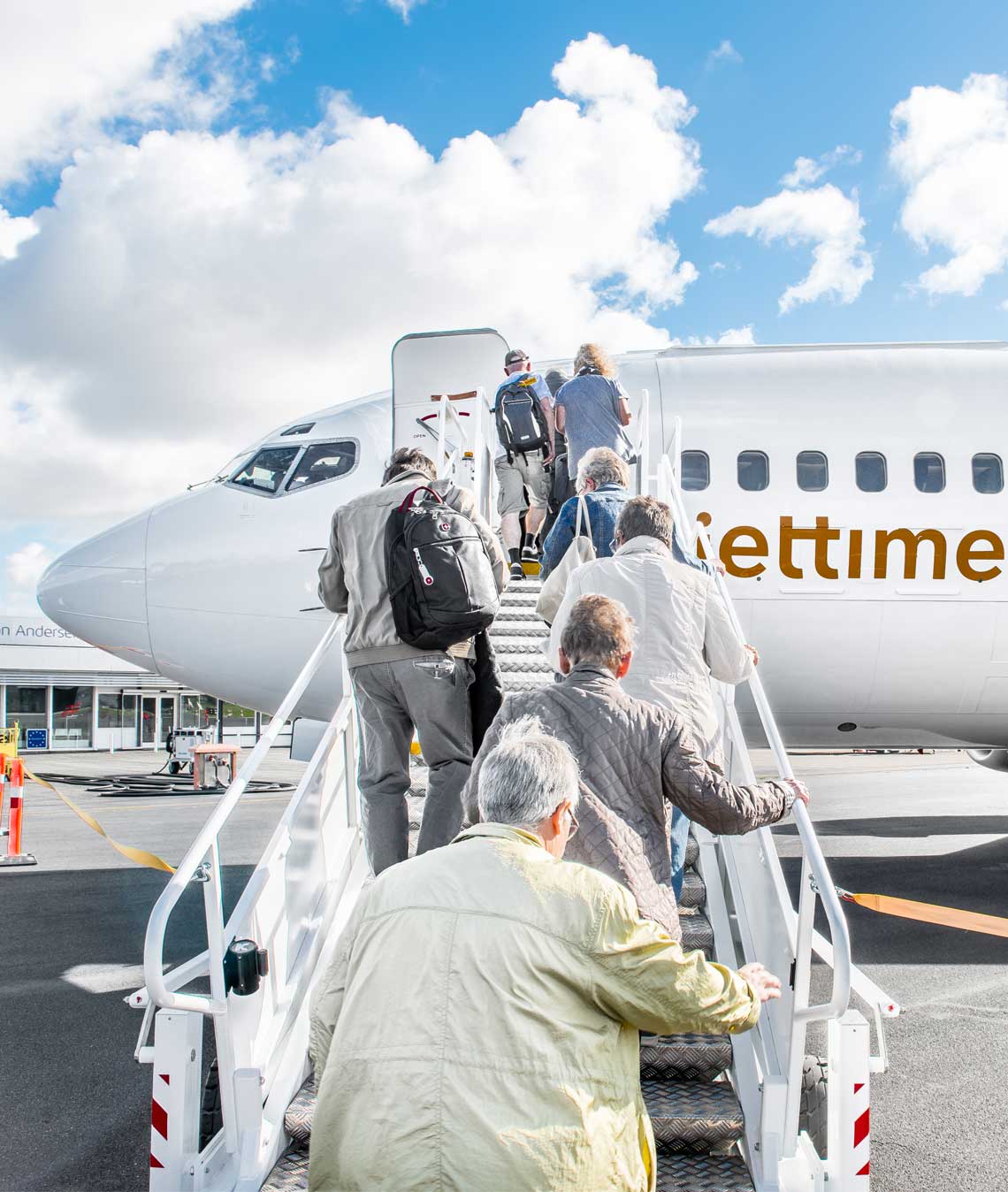Luggage

Here you will find information about luggage
Many questions can arise when packing suitcases and hand luggage. Here you'll find answers to the most important questions about:
- Airshells
- How much can luggage weigh?
- Hand luggage
- How to transport weapons and ammunition
- Travel rules with plants
You can rent a bag to protect a stroller/pram or flight case for a bicycle. Read more about Airshells and book at www.airshells.com.
Your bag or box will be handed over at the airport upon presentation of the rental agreement at check-in.
Upon return, rented airshells are handed over in the arrivals hall. It is indicated where to return them.
The weight limit varies from airline to airline, so follow the instructions provided with your booking or check with the respective travel agent.
Liquids in hand luggage
Liquids or other liquids e.g. cream, toothpaste, perfume must not be carried in containers containing more than 100 ml. You may bring more containers, but no more than can fit in one 1 litre plastic bag.
You must remove all liquids from your hand baggage and place them in the designated tray at security so that security staff can see them. You may find that the liquids are removed for additional security checks.
Medication and other special rules
If you have baby food, medicines or diet food over 100 ml that you need during the journey, you are allowed to bring these, but they must be checked at security. However, be prepared for security staff to ask for proof of the authenticity of the liquids.
Electronics
Electronic equipment such as mobile phone, laptop, tablet, camera should be taken out of the bag and put in a separate tray.
In doubt?
If you have any doubt on whether an item can be taken through security, you can check by following this link.
The airline you are flying with should be contacted well in advance if you wish to take hunting or competition weapons on your trip.
Arrive in good time, as the weapon must be checked by airport staff.
Permits and forms
You must bring the following form completed and present these at check-in at the airport.
- Travelling within the EU: bring a valid firearms pass, firearms licence and hunting licence, which will be checked at the airport.
- Travelling outside the EU: in addition to a valid firearms pass, you must present a completed firearms declaration (A + B), which can be downloaded from this link on the police website.
How should weapons and ammunition be packed?
- Weapons and ammunition may not be carried in hand baggage and must therefore be checked in as luggage
- The weapon must not be loaded
- If possible, the weapon should be separated and packed in different pieces of luggage
- Ammunition must be packed separately from the weapon in a separate case
- The ammunition shall not exceed a net weight of 5 kg
Links
Guidance: Weapons on board (The Swedish Transport Agency's website)
Guidance: Ammunition in checked baggage (The Swedish Transport Agency's website)
From 14 December 2019, new and stricter rules will apply to imports of plants and plant products from outside the EU. This also applies to travellers who bring plants and plant products in their luggage.
The new rules mean that from 14 December 2019, plants, seeds, fruit and other plant products from journeys in countries outside the EU will no longer be allowed to enter the EU without being accompanied by a phytosanitary certificate. The rules also apply to small quantities of plants and plant products. The only exceptions to these rules are fruits of pineapple, coconut, banana, durian and date, which can be freely imported.
If you bring plants for planting, including certain types of seed for sowing, from outside the EU, they must be accompanied by a phytosanitary certificate and declared for import. The goods will then be checked for import by the Danish Board of Agriculture. You should be aware that there are costs associated with the import inspection. If you bring fruits, vegetables, cut flowers or other live plant parts not intended for planting from outside the EU, a phytosanitary certificate will still be required, but the products will not have to be declared for import.
The new rules also mean that several types of plants for planting will be subject to import bans. The rules are the result of a new EU regulation, called the Plant Health Regulation, which aims to protect our natural and cultural landscape, as well as plant production, from serious diseases and pests that can accompany plant products.
You can read more here.
